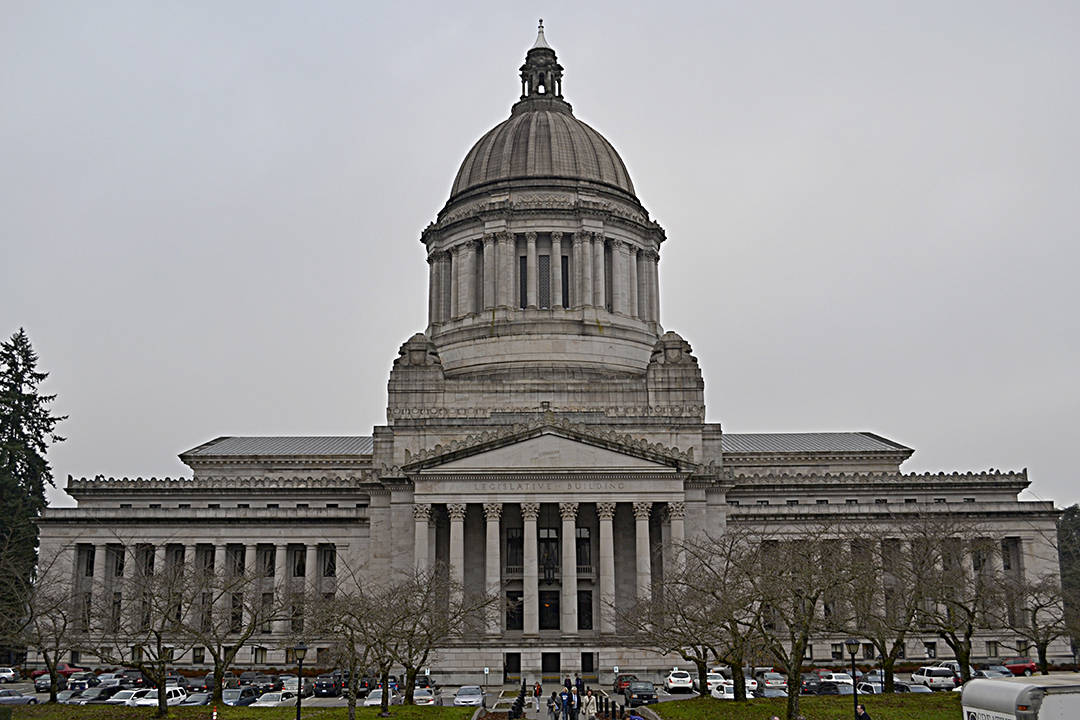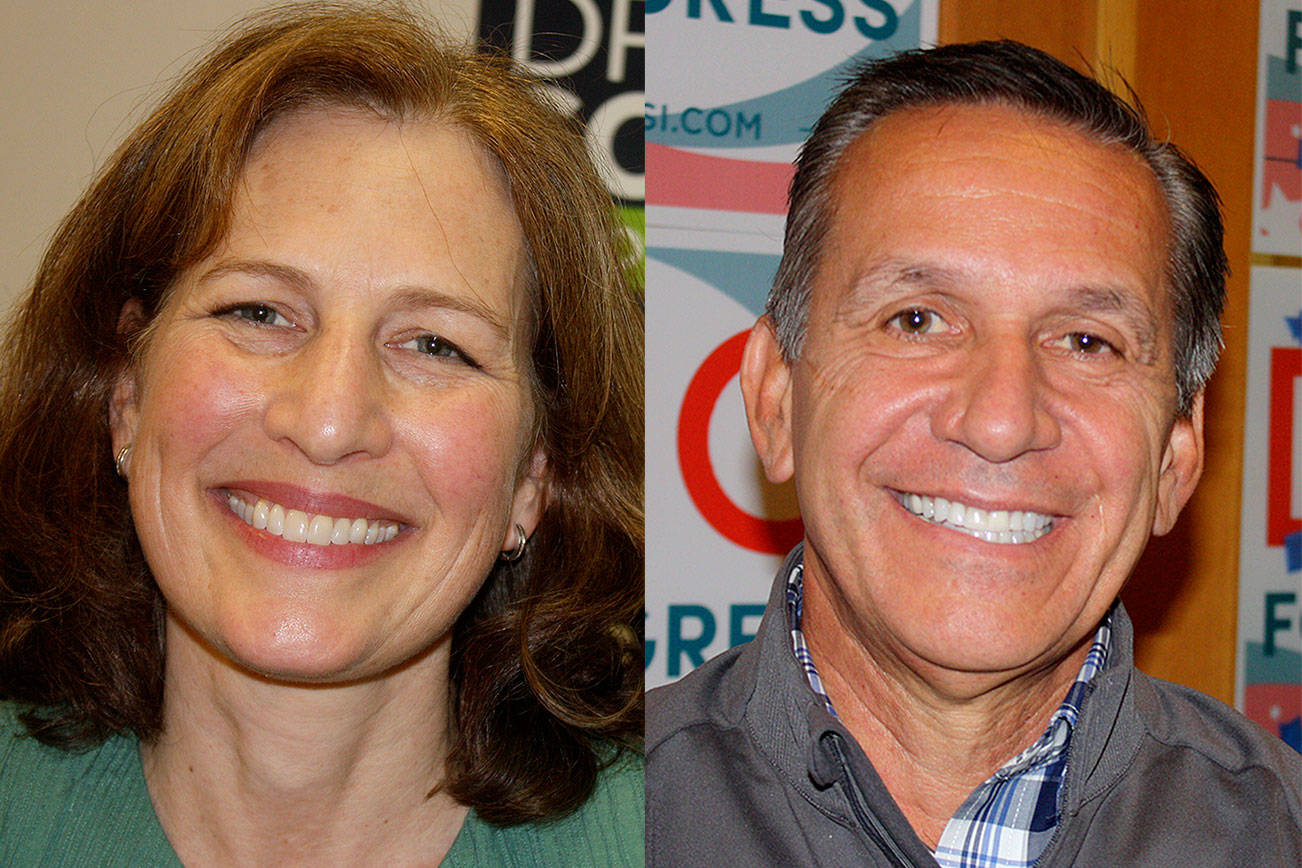When the legislature convenes on January 8 for its 60-day session, it will have a slightly different composition than last year and a dramatically different posture. With Manka Dhingra winning the contested senate seat in this state’s 46th district this past November, Democrats now have full control of state government for the first time since 2013.
What the legislature and the state’s Democratic governor will do with that power may well be shaped by what they have not been able to do for the past five years. In particular, passing a tax on carbon emissions.
As if in preview of the session, Gov. Jay Inslee unveiled a proposal late last year to create just such a tax to generate the $1 billion needed to fund the hiring of more teachers in grades K-3, as well as more competitive salaries for current teachers—two issues that were not completely dealt with in the deal that emerged from the the summer’s double-overtime session. The state had planned to spend reserve funds to pay for that one-time need in 2018—as dictated by the state Supreme Court’s 2012 McCleary decision. The proposed carbon tax would keep the reserves in reserve.
“It’s the final step to take care of this constitutional obligation,” Inslee said.
However, Inslee left out any details about how the carbon tax would be levied. Those details will be released this month, he said.
While in control of the Senate, Republicans have stopped or helped stop five similar proposals from the governor. And so it was little surprise that Senate Minority Leader Mark Schoesler, R-Ritzville, took an opening shot at this new carbon tax proposal, citing claims by a conservative Washington D.C. think tank. “According to the Institute for Energy Research, carbon taxes reduce economic growth and achieve no real environmental improvement. And, it would force companies who employ workers around the state to move overseas, costing many Washington families their jobs,” Schoesler said. Yet, the Republicans can’t shut the governor down this time, at least not without some Democratic help.
All it would take is for one Democrat to break ranks in either chamber to put a carbon tax bill into jeopardy. That means that now is the moment of truth for some Democrats. Early indications are not incredibly promising.
In fact, Democrats in the state House of Representatives—where they have long held a majority—have not been able to guarantee the 50 votes needed to pass any carbon tax proposal. It’s difficult to imagine that they will be able to if moderate Democrats in swing districts start feeling the pressure from conservative constituents.
“I’m glad we’re in the majority. But I’m a little worried about me,” joked moderate Sen. Steve Hobbs, D-Lake Stevens, who sometimes crosses the aisle.
If a carbon tax stalls in the upcoming session, said Sen. Ray Palumbo, D-Maltby—a leader on the carbon tax issue—the issue will likely go to a public ballot next November. The senator added that a law crafted by the Legislature would be more thorough and precise than a “blunt force” ballot initiative.
House and Senate budget leaders, Rep. Timm Ormsby, D-Spokane, and Sen. Christine Rolfes, D-Bainbridge Island, praised Inslee’s desire to raise the $1 billion to meet the Supreme Court’s education mandate, but they were mum in written statements about a carbon tax. Meanwhile at a recent legislative conference, Senators David Frockt and Reuven Carlyle, both of Seattle, said Democrats are still pondering how to address the $1 billion shortfall.
Inslee does not have a Plan B to fund the final $1 billion needed for education in 2018 if a carbon tax bill fails. “We don’t go into the new year planning for failure,” Inslee said.
Here are the other major issues the Legislature will be facing.
The capital budget
Several state-financed construction projects have been on hold in Seattle because the Legislature did not pass a $4 billion capital projects budget in its last session. That stopped $4 billion worth of work across the state, including $900 million for statewide school fix-it work, $130 million for work at the University of Washington and several other Seattle projects that range from classical music venues to a Filipino community center to building a new Hugo House for Seattle’s writing community. Other lost appropriations include $48 million for Puget Sound restoration projects.
“Families are not working today because the Legislature has failed to pass a capital budget,” Inslee said. “These projects have been unnecessarily delayed.”
In 2017, Washington Senate Republicans denied the capital budget’s passage because House Democrats wouldn’t give them a deal they wanted for a bill to loosen up well-digging requirements in a 2016 Supreme Court decision, the so-called Hirst Decision. In 2016, the court ruled to block landowners from digging new wells without proving they won’t threaten nearby stream levels needed for fish. The ruling has essentially halted construction of homes and businesses in many rural areas.
Republicans have significant clout on this matter because 60 percent of both the House and Senate must approve the $4 billion in bonds to finance the projects. Democrats need GOP help to reach that 60 percent mark in each chamber.
Rep. Larry Springer, D-Kirkland, a negotiator on resolving this deadlock, is cautiously optimistic a compromise will be reached in January. The Democrats’ latest offer would set up local committees in each region of the state, including people from all the appropriate special interests from tribes to local government to state agencies. This committee would review and rule on rural well-digging applications, with a process set up to appeal those decisions.
Net neutrality
In December, the Federal Communications Commission voted to eliminate net neutrality, an Obama administration rule that required Internet providers to treat all users the same. Without net neutrality, providers can arbitrarily block or slow-down services to users, provide different internet speeds to different users, and charge users in the same region different prices for the same services.
Reps, Drew Hansen, D-Bainbridge Island, and Norma Smith, R-Clinton, have introduced a bill to make Washington the first state in the nation to have in-state net neutrality despite the feds revoking it. If a provider blocks a Washington customer from using any websites or deliberately slows down Internet speeds for some users, the state would be able to file a lawsuit to stop that practice and seek punitive damages, Hansen said.
Children’s health care
Congress has failed so far to renew the Children’s Health Insurance Program (CHIP). That program officially expired Sept. 30 due to congressional inaction. It has provided almost $14 billion annually since 1997 for health insurance coverage for 9 million uninsured children across the country whose families that don’t make enough to pay for private insurance while also earning too much money to qualify for Medicaid.
There is a good chance that Congress will vote on whether and how to renew the CHIP program while Washington’s Legislature is in session. The problem is that no one knows whether Congress will renew all of the program or just parts of it—meaning Washington has no idea how much extra money the state will need to find to counter any cuts in CHIP, said David Shumacher, director of the state Office of Financial Management.
If Congress decides to severely cut the CHIP program, the Legislature will be hit with instant sticker shock in trying to fill in the gaps. If the amount is relatively small, the Legislature could scrounge up some money with some quick funding shifts. If the amount is huge, significant action could be delayed until 2019, where health funding for children could replace McCleary as the next big budget dilemma.
Death penalty
Sen. Maureen Walsh, R-Walla Walla, backed by Carlyle and several other Democratic senators has introduced a bill to repeal the death penalty in Washington for first-degree murder and replace it with life without parole.
When they were in the House in 2015, Walsh and Carlyle introduced the same bill to start public discussions on repealing the state’ s death penalty. That 2015 bills died in a Democrat-controlled House Judiciary Committee. At that time, committee chairwoman Rep. Laurie Jinkins, D-Tacoma, said the general public is not ready to repeal the death penalty. Also in 2015, the GOP controlled the Senate, and would have likely killed the bill.
During a 2015 committee hearing, testimony overwhelming favored repealing the death penalty. Repeal arguments were that imposing the death penalty is prohibitively expensive, and there is a chance of erroneously sending an innocent person to Death Row. At least nine people are currently on Washington’s Death Row. In 2014, Gov. Jay Inslee declared a moratorium on executions that will last until he leaves office.
Internet privacy
Last session, Hansen introduced a bipartisan bill that would forbid Internet Service Providers from selling a person’s personal data without the individuals’ permission. The bill overwhelmingly passed the House and had enough Republican and Democratic support to easily pass in the Senate. But the Senate Republican leadership refused to send the bill to a floor vote.
Hansen said he plans to resurrect his bill and try to get it quickly through the Legislature.
Reproductive rights
The Reproductive Parity Act would require health insurance plans that cover maternity care to cover abortions as well. From 2013 to 2015, Hobbs and Rep. Eileen Cody, D-Seattle, have introduced this bill in each chamber each year. Cody’s bill kept passing on a roughly party-line split. Both would then see their bills die in the Senate Health Care committee each year. With Democrats now controlling committee chairs in the Senate, Hobbs said he plans to resurrect the Reproductive Parity Act bill in this session.
Last year, Oregon became the first and only state to mandate abortion coverage. The cost of an abortion is roughly $600 to $650, which does not count traveling and hotel expenses. (Sometimes, a women seeking an abortion must travel to another city or even another state.)
Climate change
Rep. Vandana Slatter, D- Bellevue, recently introduced a bill to have Washington follow the world-wide climate-change-fighting agreement that the Trump administration snubbed earlier this year. Slatter’s bill, which would require that the state reduce its greenhouse emissions by 2025 to 26 percent below 2005 levels, has a decent chance of passing with a Democrat-controlled House and Senate, and there is little doubt that Inslee would sign the bill with great haste.
Railroad safety
At this time, the Legislature has no railroad safety bills introduced yet due to the recent Amtrak wreck in Pierce County . However, Sen. Steve Hobbs, D-Lakes Stevens and chairman of the Senate Transportation Committee, said: “The Legislature stands ready to do whatever necessary to help the people and communities impacted.”
news@seattleweekly.com








